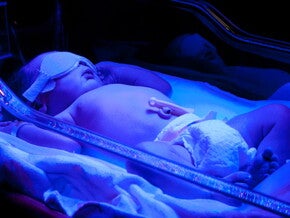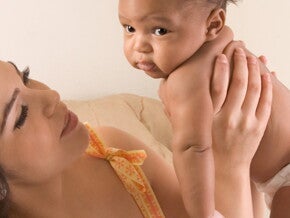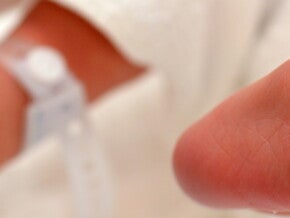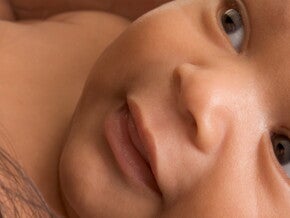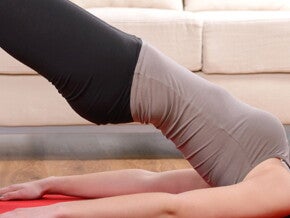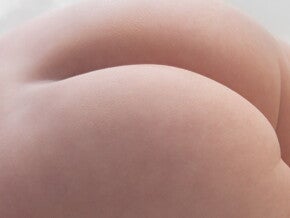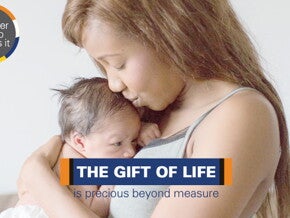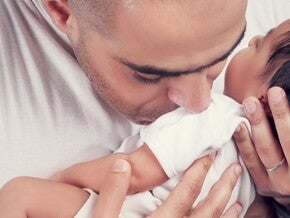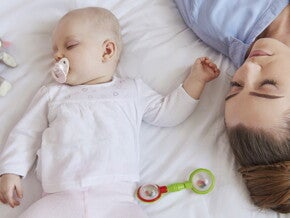
The Newborn Baby
Hello, world!
Your newborn is here and you’re busy getting to know each other. For baby, it’s all one big adventure. For parents, it’s a beautiful and challenging learning experience. Your newborn baby can see, hear, feel, smell and taste. Baby’s main needs right now are feeding, sleeping and being soothed.
CRYING
2–3 hrs daily to communicate hunger, discomfort, fatigue and loneliness. At this age, you should respond immediately to baby’s cries.
He will stop crying when he hears the sound of a bell.
SLEEPING ZZZZZZZZZ
daily (approx.)
15-18 hrs
New babies sleep and wake as much as they need to. The amount of time they stay awake is longer as they get older.
NAPPIES
In the first couple of days, baby passes a greenish-black substance called meconium. In general, in the first month, baby has at least 3 stools and roughly 6 wet nappies daily. The frequency of bowel movements varies from baby to baby. Keeping a diary will help you track what is normal for your baby.
HUNGER CUES & FEEDING MILESTONES
- Increased arm and leg movement, gazes intently at caregiver, roots for nipple, brings hands to face, sucks on fist.
- Crying and fussing can be a late sign that baby is very hungry.
- Stops or slows down sucking, falls asleep or spits out nipple when full.
MOTOR/PHYSICAL DEVELOPMENT
- He has limited or no head control and needs head support.
COGNITIVE DEVELOPMENT
- He can see bright colours and follow objects for a short distance. Enjoys bold colours; likes looking at people.
SOCIAL DEVELOPMENT
- Copies some body movements and facial expressions.
- He can distinguish sounds, especially the human voice. Talk to your newborn continually. Make eye contact, hold and love him and smile at him as he needs your interaction to feel secure.

In all the excitement of the arrival of your little miracle, don’t forget to take care of yourself.
Mom, make sure you take Nestlé MATERNA® that contains additional vitamins and minerals, which are needed for your wellbeing and health. Nestlé MATERNA is a complete daily multivitamin with balanced nutrients to help support the nutritional needs of women before, during and after pregnancy.
